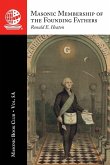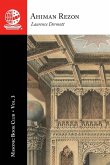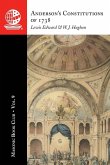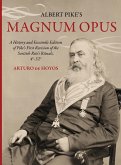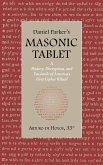Many years ago William E. Gladstone, eminent British statesman, described the Constitution of the United States as "the most wonderful work ever struck off at a given time by the brain and purpose of man." The men who created the document have been described by enthusiastic speakers as "divinely inspired" and also as being "demi-gods." But an examination of their lives will disclose that although they had different backgrounds, each was familiar with the lessons of history and the functioning of government. And they each possessed an important characteristic that is essential for success in any human activity; the spirit of compromise. A consideration of the proceedings of the Constitutional Convention discloses that the members were prompted by high ideals, but that they were also practical minded men who recognized the need of a charter that would work. Montesquieu, a Mason, in his book "The Spirit of the Law", had de scribed three basic functions of government: the Executive, the Legis lative, and the Judicial. This idea was incorporated into the Constitution of the United States with its familiar checks and balances. Being a child of revolution, and reflecting the recognition that with the passage of time there would be need for change, the document provides for making changes as needed. The periodic election of the executive and the members of the legislative branch affords constant renewal of the exercise of the will of the people. This opportunity for change by the majority makes it unnecessary to engage in violent revolution whenever those who govern are no longer responsive to the will of the people. Recognizing that the will of the majority can be tyrannical, certain basic rights are protected in the Bill of Rights. Freemasonry has as its foundation stone the worth of the individual. Since the Constitution of the United States also recognizes the worth of the individual person it can be described as a Masonic document. Under our system every person is free to make choices and act as he pleases, being restricted only from acting in a manner that will interfere with the similar rights of others.
Bitte wählen Sie Ihr Anliegen aus.
Rechnungen
Retourenschein anfordern
Bestellstatus
Storno


